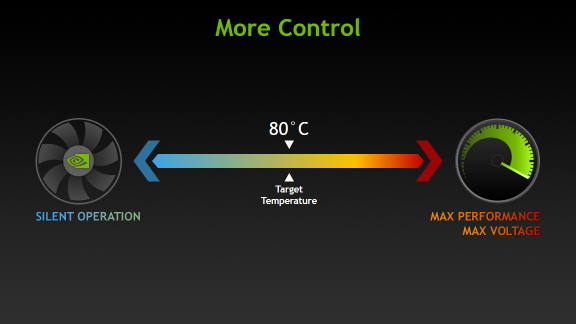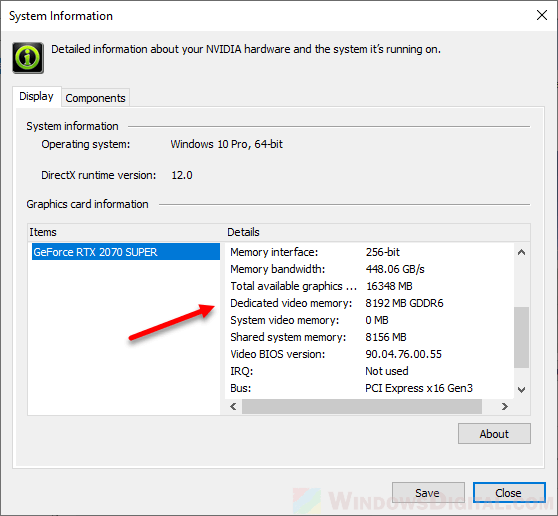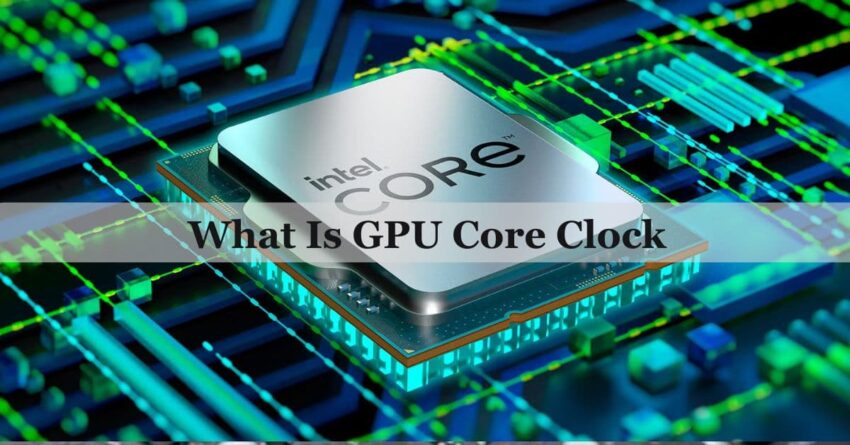When I upgraded my GPU, I noticed that a higher core clock speed made my gaming experience much smoother, with faster frame rates. The GPU core clock controls how quickly the graphics card processes data, so a boost really helped improve my performance.
The GPU core clock is the speed at which the graphics card processes data. A higher clock means faster performance in gaming and rendering tasks.
In this article, we’ll discuss “what is GPU core clock, how does GPU core clock work and also why is GPU core clock important”
What Is A GPU Clock?
A GPU clock is the speed at which a graphics processing unit (GPU) operates, measured in megahertz (MHz) or gigahertz (GHz). It dictates how quickly the GPU can process graphics and perform complex calculations.

A higher clock speed can significantly enhance performance in tasks such as gaming, video editing, and rendering. However, to achieve optimal results, it’s essential to balance the clock speed with cooling and power limits to prevent overheating and ensure stable performance.
Also Read: CPU GPU Bottleneck Calculator – Find Bottleneck Issues Now!
What Is GPU Core Clock?
The GPU core clock is the speed at which the graphics processor operates, measured in MHz or GHz. It controls how fast the GPU processes graphics data. A higher core clock improves gaming and rendering performance. However, it should be balanced with memory speed and cooling for stable and efficient performance.
What Is Memory Clock Speed?
Memory clock speed is how fast a GPU can access and transfer data from its VRAM (Video RAM) to the processor. A higher memory clock improves gaming performance by loading textures and assets quickly. It helps in reducing lag and improving FPS, especially in high-resolution gaming and graphics-intensive tasks.
What Is A Core Clock Speed In GPU?
The core clock speed in a GPU refers to the rate at which the graphics processor operates, measured in megahertz (MHz) or gigahertz (GHz). It determines how quickly the GPU processes data and renders images. A higher core clock speed can significantly enhance performance, providing smoother gameplay and faster rendering times.
However, to achieve optimal results, it is important to balance the core clock with proper cooling, power limits, and memory speed. This ensures stable performance without overheating or power-related issues, offering the best possible experience during gaming or other graphics-intensive tasks.
How Does GPU Core Clock Work?
1. Processes Graphics Data:
The GPU core clock determines how quickly the graphics card handles calculations needed for gaming, rendering, and visuals.

2. Measured in MHz/GHz:
It is measured in megahertz (MHz) or gigahertz (GHz) and represents how many cycles the GPU completes per second.
3. Higher Speed = Faster Performance:
A higher GPU core clock allows for smoother gameplay, faster rendering, and better performance in demanding tasks.
4. Adjustable with Overclocking:
Users can manually increase the core clock speed using software like MSI Afterburner to boost performance.
5. Temperature and Power Impact It:
The core clock speed adjusts based on heat and power limits; if the GPU gets too hot, it may slow down to prevent damage.
Also Read: How To Clear GPU Memory – Solve GPU Memory Problems!
GPU Core Clock Vs. Memory Clock:
The GPU core clock determines how fast the graphics card processes data, directly affecting gaming performance and rendering speed. On the other hand, the memory clock controls how quickly the GPU accesses VRAM, which impacts texture loading and overall smoothness.
Both the core clock and memory clock play crucial roles—higher core clock speeds boost overall performance, while a faster memory clock enhances data transfer, ensuring smooth gameplay, especially in high-resolution gaming and graphics-intensive tasks. Together, they optimize the GPU’s capabilities, providing an improved and seamless user experience.
Why Is GPU Core Clock Important?
The GPU core clock is crucial because it determines the speed at which the graphics card processes data. A higher core clock leads to smoother gameplay, faster rendering, and overall improved performance in gaming, video editing, and AI tasks.

By optimizing the core clock, users can achieve better efficiency without overheating or encountering power issues. This results in a smoother, more responsive experience, whether you’re gaming, working on creative projects, or performing intensive computational tasks.
How To Check Your GPU Core Clock?
You can check your GPU core clock using built-in tools or third-party software. Open Task Manager (Windows) and go to the Performance tab to see GPU details. Use MSI Afterburner or GPU-Z for real-time monitoring. NVIDIA and AMD software also display clock speeds. These tools help track performance easily.
How To Increase GPU Core Clock?
To increase the GPU core clock, use software like MSI Afterburner to adjust the settings. Increase the clock speed in small steps (e.g., +25 MHz) and test stability using benchmarking tools. Ensure proper cooling to prevent overheating. Monitor temperature and power usage to keep the GPU running safely and efficiently.
Does Higher Core Clock Always Mean Better Performance?
A higher GPU core clock can improve performance, but it’s not the only factor. GPU architecture, VRAM speed, cooling, and power limits also affect overall performance. If the GPU overheats or lacks sufficient memory bandwidth, a high core clock won’t help much. Balanced specifications ensure better gaming and rendering efficiency.
Also Read: Is It Bad To Stress Test Your GPU – Risks & Safe Practices 2025!
Which Clock Should You Consider While Buying A GPU?
When buying a GPU, consider both the core clock and memory clock for balanced performance. The core clock affects processing speed, improving gaming and rendering, while the memory clock impacts data transfer and texture loading. A higher core clock is better for performance, but memory speed is also important for smooth gameplay and graphics-intensive tasks.
Does Increasing The Memory Clock Increase FPS?
Yes, increasing the memory clock can improve FPS, but its impact depends on the game and GPU. A higher memory clock speeds up VRAM data transfer, reducing lag in high-resolution textures and large game files. However, for FPS gains, both core clock and memory clock must work efficiently together.
Is The Memory Clock Or The Core Clock Better For Gaming?
The core clock is more important for gaming because it controls how quickly the GPU processes graphics, directly affecting frame rates and overall performance. A higher core clock enables smoother gameplay, faster rendering, and better responsiveness.
On the other hand, the memory clock plays a key role in loading textures and game assets, which is especially important for high-resolution gaming and handling large game files.
A balanced combination of both core and memory clocks ensures an optimal gaming experience, reducing potential bottlenecks and providing better efficiency in graphics-intensive tasks.
What Happens If I Decrease My GPU Core Clock?
Increasing your GPU core clock boosts your graphics card’s performance, making it run faster and more efficiently. This results in smoother gameplay, quicker rendering, and better performance in gaming, video editing, and other resource-intensive tasks.

By allowing the GPU to process more data per second, it improves frame rates and enhances visual quality. However, pushing the core clock too high without adequate cooling can cause the GPU to overheat, leading to potential instability, crashes, or even damage. Therefore, it’s important to balance core clock speeds with proper cooling and power management for optimal performance.
Is GPU Boost Clock The Same As Core Clock?
No, the GPU boost clock is not the same as the core clock. The core clock is the base speed at which the GPU operates, while the boost clock is a higher speed the GPU reaches when extra performance is needed. The boost clock depends on temperature, power limits, and workload demands.
Also Read: What Is A Good GPU Clock Speed MHz – Complete Guide 2025!
FAQs:
1. Does GPU Core Clock Affect Video Editing Performance?
Yes, a higher GPU core clock helps process video effects and rendering faster, improving video editing performance.
2. Can I Damage My GPU By Increasing The Core Clock?
If done carefully, increasing the core clock is safe, but extreme overclocking without proper cooling can cause overheating or instability.
3. Why Does My GPU Core Clock Fluctuate?
The GPU core clock adjusts based on workload and temperature to balance performance and power efficiency.
4. Does Lowering The Core Clock Reduce Power Consumption?
Yes, reducing the core clock speed lowers power usage and heat output, making the GPU run cooler.
5. How Does Temperature Affect GPU Core Clock?
If a GPU gets too hot, it may throttle (lower its clock speed) to prevent overheating and damage.
6. Is GPU Core Clock The Only Factor Affecting Gaming Performance?
No, VRAM speed, GPU architecture, cooling, and game optimization also play a big role in gaming performance.
7. Can I Manually Control My GPU Core Clock?
Yes, software like MSI Afterburner and AMD/NVIDIA tools allow users to adjust core clock speeds.
8. Why Is My GPU Core Clock Lower Than Advertised?
Some GPUs lower their clock speed in idle or low-demand tasks to save energy and reduce heat.
Conclusion:
In conclusion, the GPU core clock plays a crucial role in determining how fast your graphics card processes data, impacting gaming, video editing, and rendering performance. A higher core clock leads to better performance, but it must be balanced with cooling and power limitations for optimal results. Always monitor and adjust it carefully for improved efficiency.
Related Posts:
- Why Is GPU Overclocking When Opening A Game – 2025!
- What Is Seres S GPU Wise Nivida – Find GPU Comparison 2025!
- Why Is My GPU Usage So High – Unlock The Details 2025!
- Runtimeerror: No GPU Found. A GPU Is Needed For Quantization. – Here’s How to Fix It!
Henry Smith is a GPU expert with over five years of experience in GPU repair and troubleshooting. As the founder and lead writer of Techicores.com, he provides clear and practical advice on graphics cards to help readers solve problems and make smart upgrade decisions. His passion for hardware and commitment to quality have made Techicores a trusted resource for tech users worldwide.

